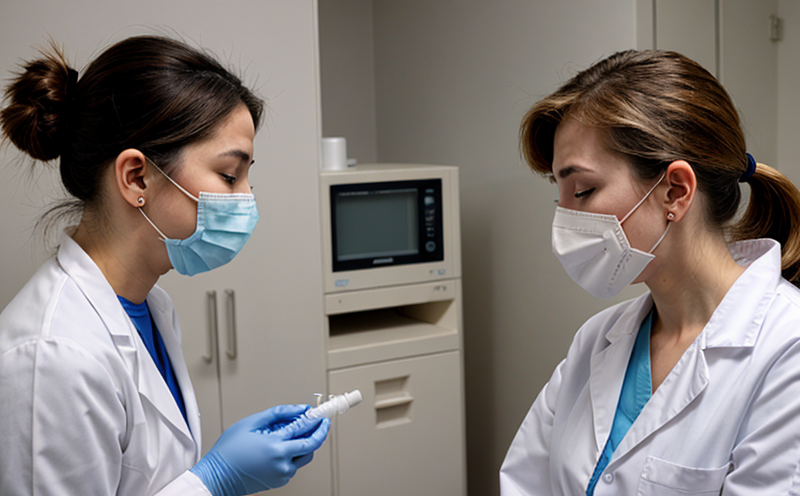Fungal Allergen Testing in Agricultural Facilities
Fungal allergens play a significant role in respiratory health issues, particularly in agricultural settings where exposure can be frequent and prolonged. Agricultural facilities, such as farms, greenhouses, and processing plants, are often environments rich in fungal spores, which can lead to allergic reactions among workers or visitors.
The importance of detecting and managing these allergens cannot be overstated, especially given the prevalence of conditions like hay fever, asthma, and other respiratory issues. Fungal allergy testing is crucial for ensuring a safe work environment by identifying potential sources of allergens, implementing control measures, and monitoring improvements over time.
Our service provides comprehensive fungal allergen testing tailored to agricultural facilities, offering precise detection capabilities that are essential for maintaining occupational health standards. This includes the use of advanced sampling techniques to capture airborne spores, followed by sophisticated analytical methods to quantify their presence accurately.
The testing process involves several key steps: initial assessment, sample collection, laboratory analysis, and interpretation of results. Initial assessments help identify potential sources of allergens within the facility. Sampling is conducted using specialized equipment designed to collect a representative air sample, ensuring that no bias influences the results. Laboratory analysis then relies on methodologies compliant with international standards such as ISO 14644-3 for cleanroom classification and EN 9280 for mold testing.
Once analyzed, the data is interpreted by our experienced team to provide actionable insights regarding allergen levels. This information can be used to implement appropriate mitigation strategies, which might include improvements in ventilation systems, changes in agricultural practices, or even relocation of sensitive individuals. Our service also supports ongoing monitoring programs to ensure that any implemented measures are effective and sustainable.
By leveraging this expertise, we help facilities comply with relevant regulations and best practices, thereby enhancing overall occupational health and safety. The precision and reliability offered by our testing methods make it possible for agricultural businesses to protect their employees from the risks associated with fungal allergens effectively.
Industry Applications
| Application | Description |
|---|---|
| Farm Management | Monitoring air quality to ensure worker safety and compliance with health regulations. |
| Greenhouse Operations | Identifying potential allergen sources that could affect crop health and worker well-being. |
| Agricultural Processing Plants | Evaluating the efficacy of cleaning and disinfection protocols to minimize allergen residues. |
| R&D in Agricultural Biotechnology | Assessing environmental conditions that influence fungal growth and its impact on biotechnological processes. |
The data from our tests can be instrumental in various applications within the agricultural sector, ranging from day-to-day operations to long-term research initiatives. By providing robust evidence of allergen presence or absence, we assist stakeholders in making informed decisions that prioritize both productivity and worker health.
Environmental and Sustainability Contributions
- Promoting healthier working environments by reducing exposure to harmful fungal allergens.
- Supporting sustainable agricultural practices through the identification of allergen sources, which can lead to more environmentally friendly operational methods.
- Facilitating compliance with environmental standards related to air quality and worker health.
- Fostering innovation in agricultural biotechnology by ensuring optimal conditions for fungal growth and activity.
The emphasis on sustainability extends beyond immediate benefits; it contributes to long-term goals of responsible resource management and improved public health. Our service not only aids in achieving these objectives but also plays a pivotal role in advancing the sector towards greater ecological responsibility.
Competitive Advantage and Market Impact
The ability to accurately test for fungal allergens provides agricultural facilities with a competitive edge by enhancing worker health and safety. This not only improves operational efficiency but also strengthens brand reputation, attracting customers who prioritize ethical standards.
In terms of market impact, our service supports the broader movement towards safer work environments across various industries. By setting benchmarks in occupational health and safety practices, we contribute to a culture of responsibility that can positively influence regulatory frameworks and industry norms globally.
Additionally, our testing capabilities enable agricultural facilities to stay ahead of emerging trends and challenges in the sector. As research continues to uncover new aspects of fungal allergens and their impacts, our service ensures that these insights are immediately applicable and actionable.





